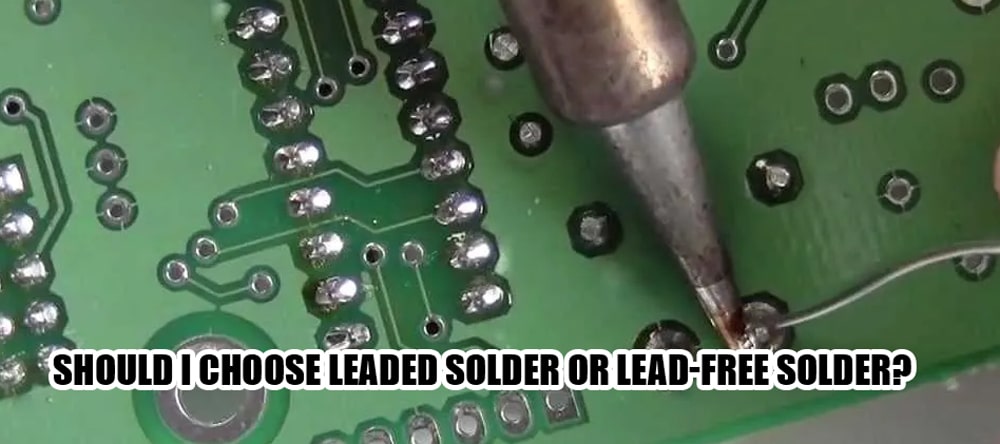Should I choose leaded solder or lead-free solder?
20 January 2025
Views: 1018
Soldering is required for further SMT processing of PCB, and we often hear about lead-free solder and lead solder as welding materials. So what is the difference between them and which one should we choose?
What is solder?
Solder is a metal alloy consisting of lead and tin melted with a hot iron. Its function is to connect two metals together after melting.
Solder is commonly used in PCB assembly. Different types of solder connect different types of metals. Note that the melting point of the solder must be lower than the melting point of the metal it connects together.
There are two main types of commonly used solders: lead solder and lead-free solder.
Lead solder
Lead solder is often used in PCB assembly and SMT component installation. Lead solder is also called SnPb solder. Its main components are tin (Sn) and lead (Pb) alloys, consisting of 37% lead and 63% tin.
Advantages of lead solder
1. Low melting point: Lead solder wire has a low melting point (183℃), is easier to operate, and has high efficiency.
2. Strong adhesion: Since the temperature of lead-containing alloys is lower than that of lead-free solder, the soldering time is shorter and the bond is tighter.
3. Good wettability: The wettability of lead solder makes it easier to flow around small holes and narrow spaces.
4. Easy to use: Lead solder does not require flux or cleaning agents before application.
5. Low cost: Not only is the material relatively cheap, but it is also more efficient and saves labor costs.
Disadvantages of lead solder
1. Toxic: It produces toxic gases such as hydrogen cyanide and carbon monoxide, so a good ventilation system is necessary.
2. Poor heat dissipation: High heat resistance makes it difficult to dissipate the excess heat generated during the soldering operation, and overheating is prone to occur.
3. Not easy to rework: Lead solder has a stronger bond, so it is difficult to rework.
Lead-free solder
When it comes to lead-free solder, most people think of it because it is environmentally friendly and non-toxic. The main components of lead-free solder are copper, tin and other additives, and commonly used alloys include Sn-Cu, Sn-Ag-Cu, etc.
Advantages of lead-free solder
1. Lead-free solder is a solder that does not contain any toxic substances.
2. The low flammability of lead-free solder increases its safety.
3. RoHS compliant
Disadvantages of lead-free solder
1. Complex: flux and cleaner are required
2. High cost: lead is about ten times cheaper than tin compared to lead-free. Higher tin content has higher cost, and some lead-free solders contain silver, which is more expensive.
3. Low wettability: The fluidity and wettability of lead-free solder are relatively weak and slow.
4. Sediment: Lead-free solder will form oxides, flux impurities and alloy deposits on the surface. It may damage the performance of the component.
How should I choose?
Many countries have strict regulations on the use of lead in electronic products. For example, the EU's RoHS directive prohibits the use of most lead in consumer electronics. If your product needs to meet environmental and health standards or needs to enter the EU market, then you need to choose lead-free solder. If the product cycle is short, does not come into contact with the human body, does not need to enter the EU, and is very cost-conscious, then lead solder is also a good choice.
